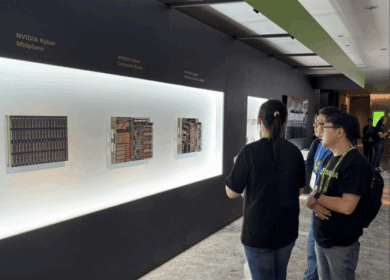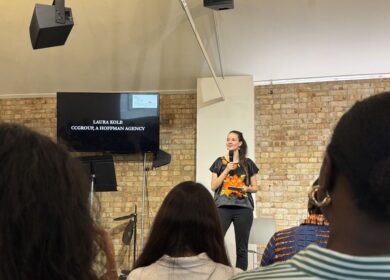
By Low Sieu Ping
The Hoffman Agency, Singapore
At the age of 22, and into my penultimate year of University, I was all about landing THE internship that would hopefully chart my post-grad future. More specifically, I was looking forward to an internship in an advertising agency — a place where I would be churning out creative campaigns and sipping tea with my clients and colleagues over discussions.
However, reality flung me far from my vision. After failed interviews and meetings with agencies that did not get back to me, I stumbled into a foreign industry known as “public relations” (aka, “PR”).
“What do you know about PR?”
“Nothing except that they hound journalists.”
A severely myopic answer was all that I managed during an interview. To be fair, that response stemmed from my stint as a journalist some years ago, in which I had regular correspondence with PR folks who would offer me content from their client over tea.
To my younger self, PR was an industry that made sure journalists crafted meaningful, if not extra meaningful, stories about their clients. How so? Through telephone calls and emails.
Nonetheless, I was shortlisted for the internship.
Perhaps it was a plan to correct my narrow-minded view of the industry. I never imagined myself as a PR professional after that journalism stint because I did not want to be in a PR person’s shoes. PR folks were the people who would ring my mobile three times despite its always going unanswered and send me releases that I might not necessarily care about. I very much preferred to be left in peace to write stories that mattered to me and my readers, even if it meant possibly going against the PR person’s wishes.
But just like that, my 22-week PR internship started. Now it was my turn to ask the questions.
“Hello, I’m Sieu Ping from The Hoffman Agency. Do you have a minute to speak?”
“Yeah.”“I wanted to check if you received my invite to …?”
“Yeah.”
It was easy to think that PR folks are an annoying group of people, forcefully pushing their influence onto journalists — be it part of an interview or sending through follow-up emails on unanswered messages. Now I had to admit that I was one of these people!
I could not really understand why we had to sit in on a client interview. If I am honest, I was actually worried that I would be viewed in the same way I used to view some PR people. It was as if it were an intrusion on privacy, listening in on what the journalist was asking, and sitting there wide-eyed as my spokesperson shared his thoughts.
And that was not all. Sometimes, we would bear the wrath of the client for unexpected questions thrust upon them. Unfair? Perhaps.
Don’t get me wrong. I fully understand the intensity of a newsroom and that journalists are not accountable to PR folks — and vice versa. I loved every bit of my journalism career, including the times where I was part of the crime desk and taking notes at the police headquarters. I would not forget the time I had to trudge through ankle deep waters with my photographer to cover the numerous flash flood incidents that plagued Singapore a few years back.
That said, strangely enough, I began to like what I was doing on the other end of the spectrum as a PR person.
Unearthing my clients’ stories was challenging, educational and gratifying. I began to realise that I might have a knack for this business, alongside the critical skill of interpersonal relations, which I previously did not know I possessed. More importantly, I communicated more efficiently and effectively as a PR person than I did as a journalist.
Perhaps back then, at a tender age of 19 and fresh out of junior college, I was more preoccupied with trying out anything new that I could land my hands on before entering University. And journalism was that choice.
“Okay. Tell me what your pitch is about and I’ll see if that’s something we can pursue.”
If communications is about crafting and disseminating the most accurate messages, then PR could be very similar to journalism.
While there are still inherent differences between the two industries, my point is that PR and journalism have a symbiotic relationship. There is still as much power in PR to evoke change as journalism has.
When it comes to producing content or telling stories, it is safe to say that we have moved into an era where companies and individuals can be media outlets themselves (think, citizen journalism and sponsored content) with the capacity to create and syndicate content. In that very sense, the general public today is being influenced by myriad sources. And PR is gradually demonstrating neutrality in building trust with authenticity and propelling meaningful change in societies and lives.
By the end of my accidental foray into PR, I discovered that while PR is an industry with many faults, it is also an industry of influence. The ability to create meaningful stories with impact drew me to journalism — and that very reason is keeping me grounded in PR.
In today’s times where the boundary between PR and journalism continues to blur and reform, it seems only wise that journalists and PR folks cast aside clichés and play to each of our strengths. Essentially, if I cannot be the journalist belting out the stories to my readers, then I better be a good gatekeeper in sharing relevant and compelling stories of my clients to my peers from the other side of the elastic fence.
It isn’t easy, but I think it’s worth every shot. After all, the marriage between PR and journalism is hardly an easy one.

